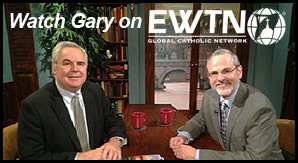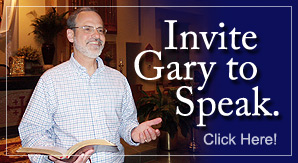“But of that day or hour, no one knows, neither the angels in heaven, nor the Son, but only the Father.”
Is it true that Jesus really doesn?t know when the end of the world (the General Judgment) will occur or is there more to this statement than meets the eye? Fortunately, we can relax because the Church teaches very clearly that Christ?s human knowledge is free from ignorance or error. How then can we interpret His statement?
The Catechism of the Catholic Church (CCC) states:
By its union to the divine wisdom in the person of the Word incarnate, Christ enjoyed in his human knowledge the fullness of understanding of the eternal plans he had come to reveal. What he admitted to not knowing in this area, he elsewhere declared himself not sent to reveal (Acts 1:7). (CCC 474)
Furthermore, in the highly regarded reference book Fundamentals of Catholic Dogma, author Ludwig Ott states:
In explanation of the scriptural passage Mk 13:32, the Fathers of the Church submit 2 interpretations:
1. Christ should not, in accordance with the will of the Father, reveal the moment of the General Judgment to mankind. ?It was no part of His teaching duty to make it (the day of the General Judgment) known to us.? (St. Augustine)
2. Christ as man knew the day of the General Judgment indeed, but He did not have this knowledge from His human nature. (Pope St. Gregory the Great)
So, fear not, Jesus most certainly knows the date of the General Judgment, but we don?t. That?s why it is so important to be ready. As the liturgical year comes to a close the Church reminds us that we should be prepared for judgment. While the General Judgment may still be thousands of years away, we can be sure that our own Particular judgment (occurring immediately after our death) will take place much sooner.








I disagree with your interpretation. It seems obvious that Jesus really did not know. To say otherwise seems to call into question the fullness of the incarnation, because part of being human is not having all the answers to everything. And Jesus was truly human.
How else could he grow in knowledge and wisdom, if he were already in possession of the perfection of both?
Thankfully, He knows the day of our particular judgments as well 🙂
all 3 answers listed beg the question – when Jesus knew when the time will come, he could not say that only the Father knows that would be not true and we can't expect that he would say something that is not true. the answers you state actually do not answer the question proper. I wonder if there is really an answer to it
Geoffrey – Thanks for the comment, but it is not "my interpretation". As referenced in the blog post, it is the teaching of the Church founded by Jesus Christ – the Catholic Church. That's the beauty of having an unchanging body of 2000 year old Church teaching – I don't have to rely on my own fallible interpretation! God Bless, Gary
Joseph – Thanks for your comments, but the facts are very clear. The one, true, holy and apostolic Church founded by Jesus Christ teaches inerrantly that Jesus did have full knowledge of the Father's plans. We are blessed to have a Church that helps us to understand confusing biblical passages. That's the beauty of the Catholic Faith! God Bless, Gary
Dear Gary,
With respectful disagreement, I do not understand how it is the official teaching of the Catholic Church.
The Catechism passage you quoted reads: "By its union to the divine wisdom in the person of the Word incarnate, Christ enjoyed in his human knowledge the fullness of understanding of the eternal plans he had come to reveal. What he admitted to not knowing in this area, he elsewhere declared himself not sent to reveal (Acts 1:7). (CCC 474)"
This is clearly an affirmation that Christ really did claim not to know some things. Holy Mother Church only guarantees that Jesus had a sure knowledge of his mission on earth and of those things he was sent to reveal. Anything beyond this is speculation.
Of course, it is not contrary to the faith to assert that Christ, in his human nature, had the perfection of all knowledge; at least, I am not aware of any official statements condemning this viewpoint. However, I do maintain that such an opinion is unnecessary, difficult to square with the evidence of Scripture, and perhaps mildly injurious to the radical completeness of the incarnation.
Moreover, there were far, far more than two interpretations offered by the Church fathers. I can cite sources if you wish, but I will need time to carefully consider them first so that they will get the proper scholarly treatment they rightly deserve; I don't want to just verse-sling.
The truth of the matter is, the issue you bring up regarding Christ's knowledge has yet to be definitively settled. It seems to me though that building elaborate theologies to explain, or rather, explain away our Lord's confessions of ignorance is the wrong way to go about things. Such eisegesis seems a bit belabored, and the conclusions it reaches seem to be somewhat of a stretch.
The incarnation is already intrinsically paradoxical and beyond the grasp of human reason. That the all-knowing God became a man who suffered ignorance just as we do, but without sin, is just another facet of Christ's unfathomable mystery; it also teaches us that perfect holiness does not demand superhuman intellect.
And that should be a relief to us all.
"We are blessed to have a Church that helps us to understand"
I don't mean to be argumentative, but I believe the point of the comments is that the posters, in fact, do not understand. In this case, the quotes do impart knowledge, but that is not the same as understanding.
fwiw, the quote from the Bible does not say "I do not know" – it says "the Son". Referring to oneself in the third person is not exactly typical, and is worth contemplating. In the context of the quotes from the Catechism and the pope, it could be he was referring to his human nature specifically. Just a thought.
Hi Geoffrey, I do appreciate your comments on this matter. According to Ludwig Ott's "Fundamentals of Catholic Dogma", the following statement is declared as SENTENTIA CERTA (theologically certain)
"Christ's human knowledge was free from positive ignorance and from error". Ott relates that the chief proponents of the theory that Christ was ignorant of the date of the General Judgment were the Agnoetes in the 6th century. The Patriarch Euologius of Alexandra stated that "Christ cannot be ignorant of anything in the past or future" and Pope Gregory the Great approved this teaching and called the Agnoetes heretics. Hope this sheds some light on my previous comments.
I retract my criticism. As my friend John C. Wright explained the matter:
***
I am not sure that in Heaven, since God the Father is not necessarily distinct from us any more than we are really distinct from each other, the questions you pose about different aspects of one nature expressed as two natures do not seem meaningful. You may be like Mr. A Square of Flatland asking
about whether the faces of a cube are separate from the cube, and participate in the mysterious property called "volume" that 2-dimensional squares can but dimly apprehend.
Is a character I play in a D&D role playing game part of me, or a different being? Certainly I can tell the difference between John Wright and Jon Iron Hand of Castle Darkskull. If I use my out-of-character knowledge, am I breaking the rules of the game? It would seem a miracle from the point of view (if they had a point of view) of NPCs and other characters inside the game if I had knowledge
from outside the game. But would the out-of-character knowledge be mine, John Wright, or his, Jon Iron Hand? See my point?
***